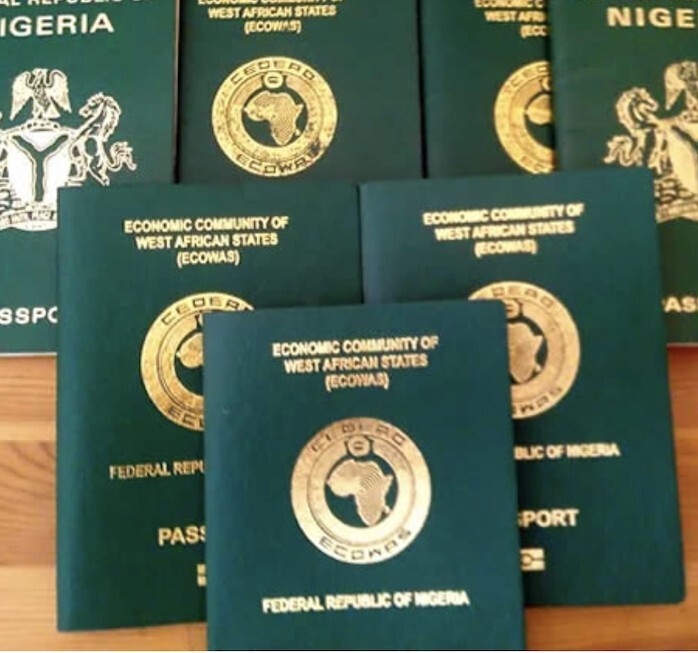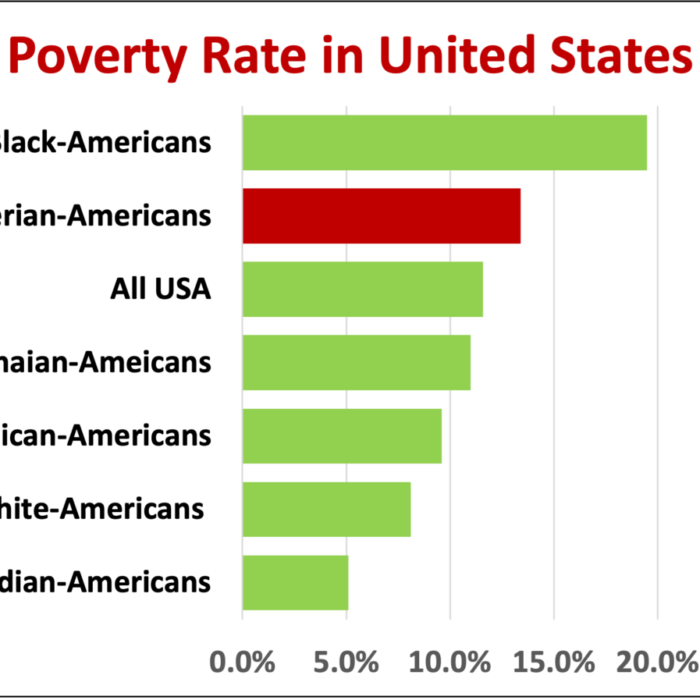By Nnaoke Ufere, PhD
A recent survey by the African Polling Institute found that 70% of Nigerians, regardless of ethnic background, are eager to seek opportunities abroad. This trend highlights widespread dissatisfaction with the country’s direction, exacerbated by ineffective political leadership and a climate of fear and uncertainty.
Nigeria grapples with multiple challenges including economic stagnation, unemployment, inflation, poverty, corruption, a discredited judiciary, inequality, insecurity, food scarcity, and ethnoreligious conflicts. Additionally, social media narratives predicting national collapse and accounts of religious and political oppression contribute to a pervasive sense of dread.
Amidst this backdrop of alarming news, many Nigerians have become disillusioned and doubtful about the country’s future. The initial actions of the Tinubu administration have done little to alleviate these concerns or inspire hope for a significant change in direction or policy.
Confronted with these distressing realities, large numbers of Nigerians look for exit in search of a better economic life somewhere else. And those who have left have no plans to return.
The decision to stay or leave Nigeria is a profoundly individual one, but its impact resonates throughout society. As our talented citizens abandon the nation, they leave in their wake a looming disaster for the millions who stay behind.
The exodus of doctors and nurses has left our healthcare system critically understaffed. The departure of top scholars and scientists has stripped our universities and research institutions of their intellectual prowess.
With engineers and entrepreneurs moving to the US and Europe, our economic landscape suffers a loss of the innovators and inventors who drive economic growth and job creation and help reduce unemployment. Remaining are the same key figures – the political, economic, and religious elites – who are accountable for the problems that triggered exit, yet continue to prosper amid the chaos.
Some argue that the over $20 billion in annual remittances from Nigerians abroad indirectly aids nation-building. While it supports families back home, large portions of this is consumption, not investment in the productive economy. Consumptive remittances don’t lead to job creation; instead, they foster a mindset of entitlement, dependency, and passivity among those who receive them.
Further, remittances disincentivize the government from resolving the domestic issues that trigger migration in the first place: unemployment, poverty, political repression and insecurity. Our government is less motivated to address these issues, seeing more value in citizens working abroad to generate foreign currency.
For instance, Nigerian medical professionals hold greater value to the government if they migrate and contribute foreign currency, as opposed to practicing within Nigeria where their services are highly needed.
Additionally, the emigration of young, potentially politically active Nigerians, to Europe and the U.S. depletes the country of those who might rise up and challenge the status quo.
In the context of Nigeria, the notion that remittances significantly contribute to nation-building is, in its entirety, fundamentally flawed. Transforming Nigeria requires more than just billions of dollars from abroad; it’s the efforts of its grounded people that will truly reshape the nation.
The Illusions of a Greener Pasture
Many Nigerians are attracted to foreign countries where success appears more easily achievable, rather than cultivating growth and opportunities at home. The appealing green pastures they seek to benefit from were made lush and vibrant by the efforts of citizens in those host countries.
The hard truth is that the grass in these green pastures is only green because it has been diligently nurtured and watered by those who own and care for it. Instead of developing and nurturing their own green pastures at home, Nigerians often seek to reap benefits in lands where they haven’t sown.
Yet, beyond this allure, they often encounter challenges such as unemployment, underemployment, feelings of alienation, racism, marginalization, and xenophobia, which can be as daunting as the issues in Nigeria they hoped to escape from in the first place.
Racial prejudice and animosity persist, even with advanced degrees, high-ranking positions, and luxurious lifestyles. Their blackness and country of origin define their identity, relegating them to inferiority as foreigners from a troubled nation, an “ass-hole” country as President Trump derogatorily ascribed.
Truth be told, regardless of their destination, Nigerians remain themselves: black immigrants from a disparaged nation. They are forever labeled as foreigners, perpetually burdened by the stigma of being an “other” from a failed nation. Consequently, Nigerians often face the probing question from their host country, “Why don’t you return and fix your own country? What brings you here instead?”
There’s more worrisome news. Emerging trends are becoming unfavorable for both those who have migrated and those contemplating leaving Nigeria. The world is going native.
Everywhere you turn in Europe, North and South America and Asia, populist nativists are clamoring to defend their national culture, identity, and economy against perceived attacks by outsiders like Nigerian immigrants and their children even if they’re naturalized citizens or born to naturalized parents.
As this nationalistic and populist movements spring across developed nations, the likelihood that non-natives will be asked to leave is not a question of if but when. Whether you are a naturalized citizen or a green card holder, your life could be turned upside down when the US Congress, for example, under a nativist president changes the constitution to expel non-natives.
For instance, US presidential candidate Donald Trump has made his plans known to disenfranchise non-natives their constitutional rights in the US, if elected — a prelude to sending them back to their “ass-hole” countries.
In some EU countries such as Denmark, Hungry, Germany, France, UK, Austria, the Netherlands, Belgium, and others, opposition to immigration and immigrants is source of negative energy that is beginning to bubble to the top. The cracks are showing and the eruption is likely to happen as economies struggle to meet the needs of native populations.
More importantly, history repeatedly echoes this somber truth: exceedingly few Nigerians reach the zenith of their potential while wandering in foreign lands. Indeed, one might find temporary success and make do, but in the grand tapestry of life, they persist in a state of underachievement, never quite reaching the full spectrum of their human capabilities in the long term.
It is in this unnerving context that Nigerian immigrants must come to recognize that Nigeria truly is their most significant and irreplaceable homeland. Echoing the essence of an Igbo saying, “Agaracha must return home,” it emphasizes that no matter where one travels globally, the allure of one’s homeland inevitably draws them back. Indeed, there truly is no place like home.
There Once Was A Beautiful Nigeria
Rare are the places that can rival Nigeria in its golden days — a land that once offered boundless opportunities to embrace one’s true self and soar to the heights of one’s potential.
Young Nigerians must be made aware that the nation they see today wasn’t always so. There once existed a Nigeria where steady electricity was a norm, where university graduates stepped confidently into awaiting careers, and where the education system stood tall, rivaling the world’s elite institutions.
It was a Nigeria where night journeys from Aba to Zaria were taken without a whisper of fear, free from the shadows of kidnapping or the threat of murder. It was a land where indiscipline met with firm hands of justice, and corruption hadn’t seeped into the very marrow of society.
In that Nigeria, a pervasive gloom was unknown, replaced instead by an air of optimism and joy, where smiles were as common as the morning sun. This is the Nigeria that once was — a beacon of hope and prosperity. Yet, in a fleeting moment, this era of prosperity and peace came to an abrupt end.
Before a significant number of companies departed, Nigeria was home to well-known firms like Michelin, ExxonMobil, Unilever, Sanofi, Bolt Food, Procter & Gamble, and GlaxoSmithKline, Surerest Foam Limited, and Mufex. Also present were Framan Industries, MZM Continental, Nipol Industries, Moak Industries, Stone Industries. These are just a few examples from over 1200 companies that have left the country since 2000.
But that Nigeria is not just nostalgia; it’s a clarion call. Together, we have the power to not only resurrect that golden era but to forge it anew, even more radiant and promising than before.
Only Nigerians Will Transform The Country
We all bear responsibility for allowing the persistence of Nigeria’s problems. It’s our collective duty to work together to rebuild our society, ensuring dignity for every Nigerian.
To foster Nigeria’s development, it’s essential we all actively engage in its transformation. We should prioritize unity over division, appreciate our achievements while tackling our shortcomings, and confront our issues head-on. Enough with the purveyors of doom and gloom.
Recognizing that history replaces old political structures with new ones is crucial. Just as dinosaurs became extinct, older leaders holding onto archaic ideas and outdated concepts of nation-building, rooted in past divisive practices, will inevitably fade away over time, naturally.
The time has come to forsake regional biases and understand that any zone’s predicaments are the collective responsibility of Nigeria. The interdependence among Nigeria’s six zones holds greater significance than the forces of tribalism, regionalism and dominance.
Therefore, debates about zonal or tribal supremacy lose meaning in light of our economic interconnectedness. Advocates for separation and exclusion must recognize how extensively they rely on a unified Nigeria for market access and vital resources.
For example, the Southeast relies on supplies of food and ingredients from the Northern region for sustenance. The Northern economy depends heavily on the enterprising Southeasterners, who are the primary suppliers of crucial components — goods and services — that keep the economy functioning smoothly.
This interdependence is vital for the nation’s functioning; without it, we risk suboptimal performance. This Southeast-North example holds for other regions.
Nigeria’s strength lies, therefore, in its diversity, and the collective contributions of all its peoples who have played a vital role in shaping and enriching the country’s cultural, economic, and social fabric.
Become a Problem Solver Not a Complainant
The upcoming years are crucial for Nigeria’s fate. Young, educated individuals will lead the way, marking a new era of progress. Nigerians in the diasporas will start to return to the motherland. Together we will build a strong nation, bolstered by the contributions of homebased and repatriated Nigerians.
Our nation’s best moments are ahead, waiting for our determined commitment, patriotism, and unity. With a projected population of 377 million by 2050, a youthful and dynamic Nigeria is poised to become one of the world’s largest markets. This should inspire us all.
But we need visionary leaders and patriotic citizens who are actively involved in shaping our nation’s destiny. These leaders are amongst us today. It’s time they stepped forward to champion our nation’s rebirth and a better Nigeria.
Yes, the path to a better Nigeria will be complex, but the journey is undoubtedly worthwhile. By embracing our shared responsibility and participating in nation-building, we can create a stronger, more prosperous and safer Nigeria for future generations.
In sum, opting to remain in Nigeria, despite its challenges, emerges as the pragmatic decision for the majority of Nigerians. I have pledged to return.
Nigeria’s future is bright but not without obstacles. Nigeria could be the best country we have, though it’s often underappreciated.





